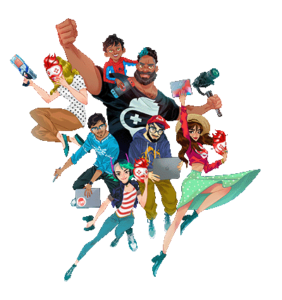Video games have come a long way since the early days of Pong, Pac-Man and Space Invaders. Today, video games are more than just a source of entertainment—they’re also changing the way we learn and interact with the world around us. In this blog post, we’ll explore how video games are revolutionizing education, social interaction, and even the way we approach problem-solving.
Education
Video games are increasingly being used as a tool for education. Games like Minecraft and Kerbal Space Program allow players to explore and learn in a virtual environment. These games provide a hands-on approach to learning that’s more engaging than traditional classroom lectures. Research has shown that games can help students develop critical thinking, problem-solving, and decision-making skills.
“My students have been able to practice task management skills, problem solving, and personal relationship skills. Being able to see them excited and engaged with their learning is priceless.” — Karen Carnes, Special Education Teacher, U.S.
Social Interaction
Video games have also changed the way we interact with others. Multiplayer games like Fortnite and League of Legends have millions of players worldwide. These games provide a platform for social interaction and can even help players develop teamwork and leadership skills. In addition, online gaming communities offer a sense of belonging and support that’s difficult to find elsewhere.
It was also found that children with autism who played a video game called “Minecraft” showed improved social skills and communication with peers compared to those who did not play the game.
In Minecraft, players can work together to build and create things in a virtual world. The study found that playing Minecraft in a group setting helped children with autism learn how to cooperate, share ideas, and communicate with others. This, in turn, translated to improved social skills and communication in real-world settings.
The study highlights the potential of video games as a tool for improving social interaction and communication skills, particularly for individuals with autism and other social difficulties.
Problem-Solving
Video games also encourage players to approach problems in a new way. Games like Portal and The Witness challenge players to think creatively and solve puzzles in unconventional ways. These problem-solving skills can translate to real-life situations, where players can apply their critical thinking and decision-making abilities to overcome challenges.
Virtual Reality
Virtual reality (VR) is also changing the way we learn and interact. VR technology allows users to enter fully immersive virtual environments. This technology has been used for education and training, allowing users to experience situations they may not encounter in real life. For example, medical students can use VR to simulate surgeries, while astronauts can use VR to train for space missions.
Conclusion
Video games are more than just a form of entertainment. They’re changing the way we learn and interact with the world around us. Games are being used for education, social interaction, problem-solving, and even virtual reality. As the video game industry continues to grow and evolve, we can expect to see even more innovations that change the way we approach learning and socializing.
Read more about video games:
The Top 5 Must-play Classic Video Games from the 80s and 90s
The Top 5 Most Immersive Virtual Reality Games for a Truly Engaging Experience


